From OEM to Brand Building: How to Launch Your Own Paddle Board Line in 2025 (Part1)
May 09, 2025
Leave a message
Why 2025 Is the Best Time to Launch Your Paddle Board Brand
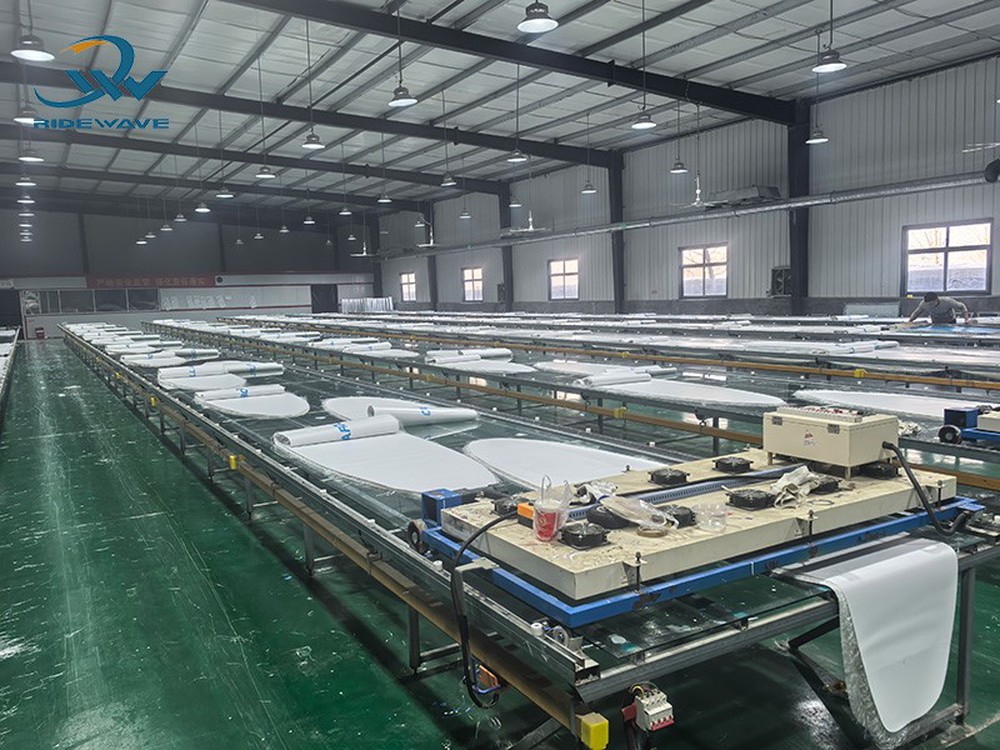
If you're considering launching your own paddle board brand, 2025 is the perfect time to start-especially if you're a B2B buyer, wholesaler, or brand owner based in Europe, Australia, or Russia.
The global inflatable paddle board (SUP) market has been steadily growing, with increasing demand for personalized designs, eco-friendly materials, and high-quality performance boards. Consumers no longer settle for generic products-they want lifestyle-driven brands that offer real value and identity. This shift creates a golden opportunity for OEM buyers to step up and become brand builders.
So why now?
Step 1: Identify the Right Market & Niche for Your Paddle Board Line
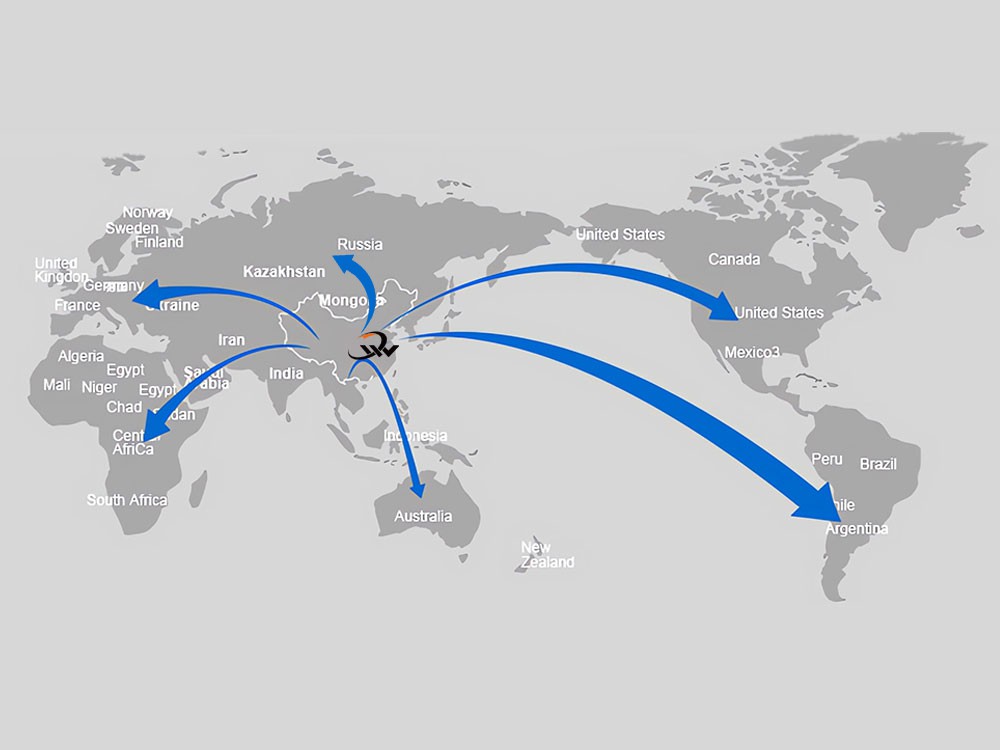
1. Study Regional Trends and User Habits
Different regions have different paddle board cultures:
Europe (Germany, France, Poland): Touring and all-around boards are popular, with demand for eco-friendly materials and stylish design.
Australia: A coastal lifestyle means high interest in surf SUPs, lightweight boards, and premium accessories.
Russia: Rivers and lakes dominate, making durability and cold-weather resistance top priorities.
Use local distributor feedback, Google Trends, or even social media platforms to understand what your customers actually want.
2. Choose a Clear Product Category
There are five main inflatable SUP types to consider:
All-around SUPs – Best for beginners and general use
Touring SUPs – Longer boards for flatwater distance paddling
Surf SUPs – Shorter, more maneuverable boards
Yoga/Fitness SUPs – Stable, wider decks for wellness use
Racing SUPs – Narrower, high-performance boards
Instead of trying to offer everything, start with 1–2 product categories that fit your market niche.
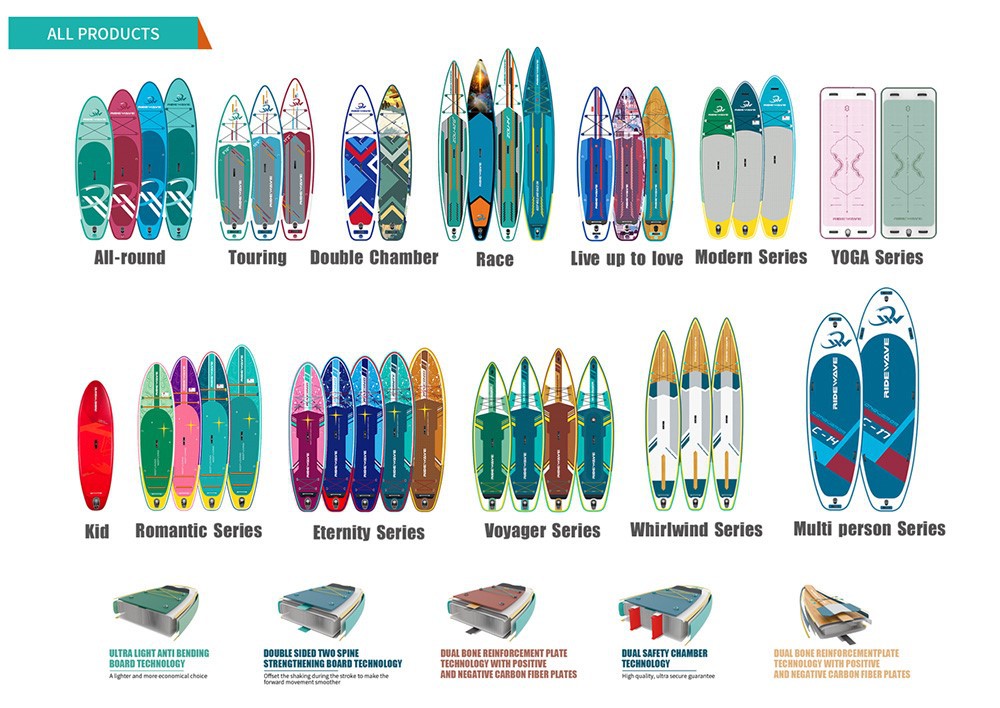
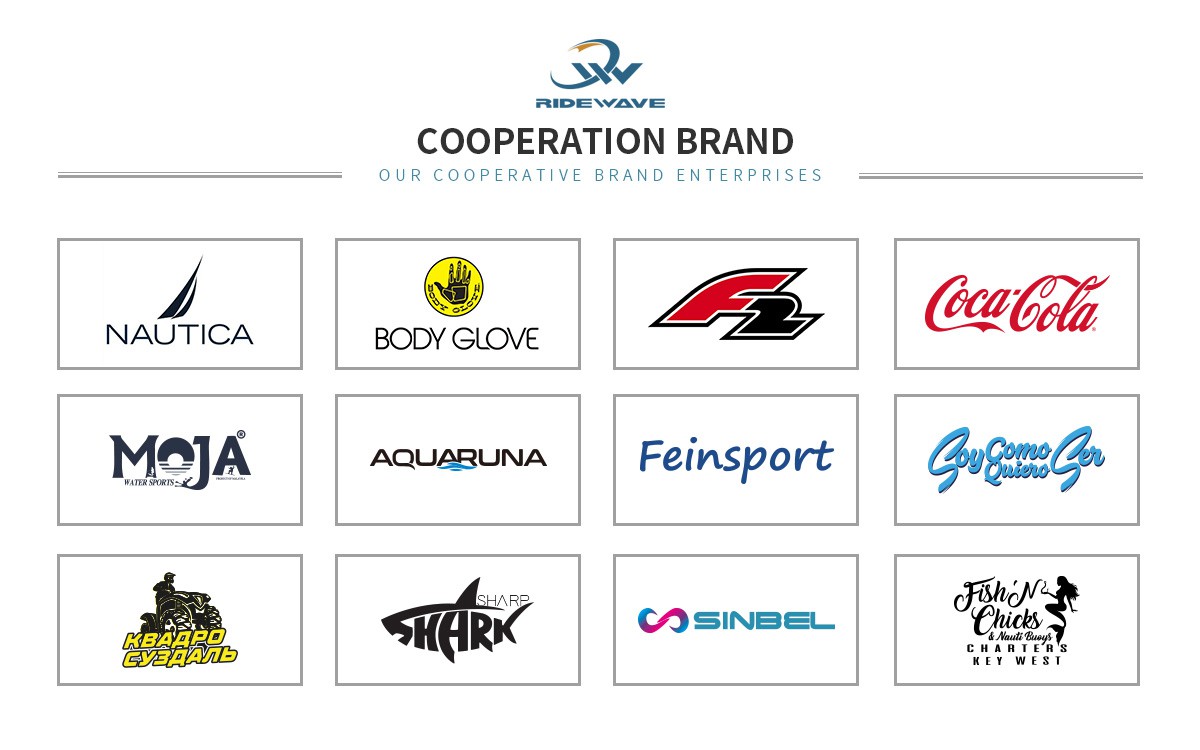
3. Understand B2B Buyer Needs
If you're supplying retailers, rental shops, or sports distributors, think about:
Which models are easiest to sell or rent?
What price range fits their business model?
How many SKUs should you offer at the start?
Offering a focused product line makes logistics, inventory, and marketing easier.
4. Look for Gaps in the Market
Find an edge. Can you offer:
A design style not common in your region?
A bundle package (paddle, pump, dry bag)?
A special feature (carbon paddle, camera mount, double-layer PVC)?
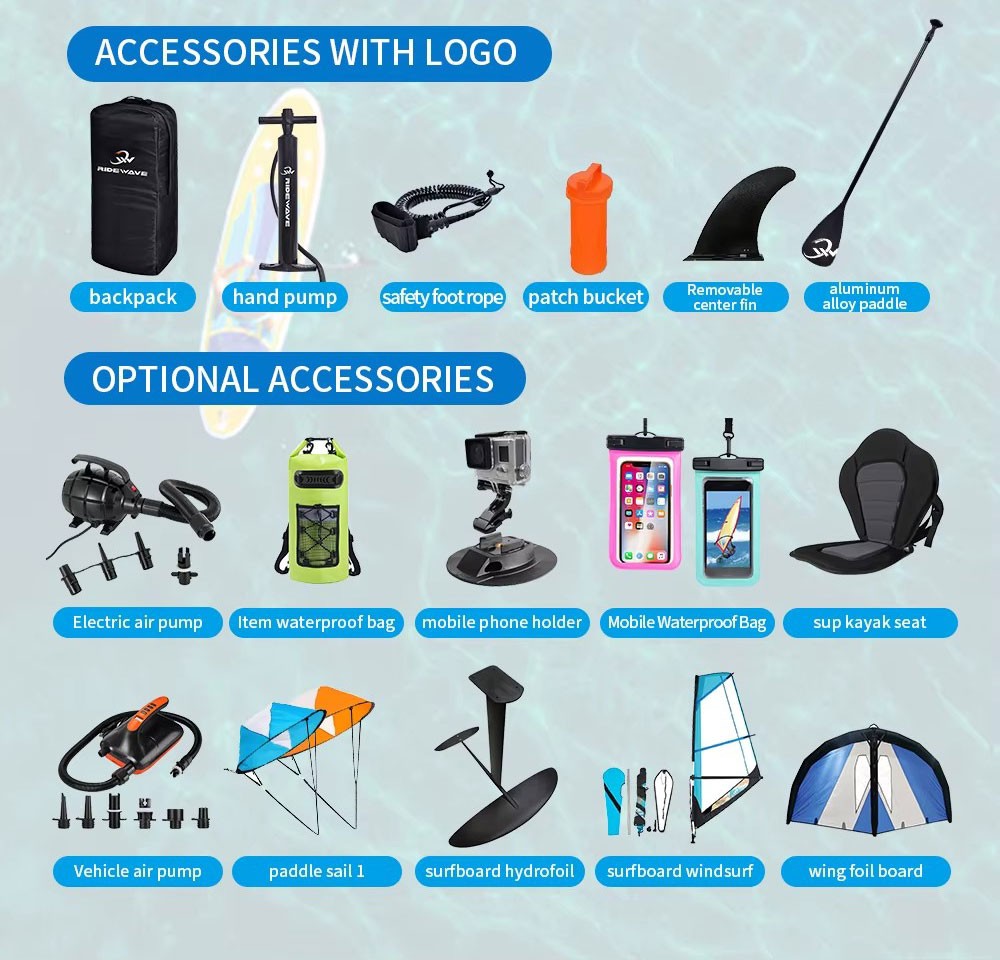
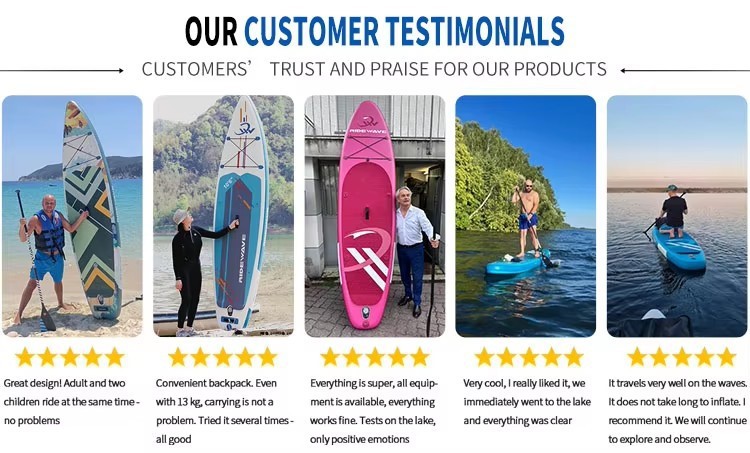
5. Test Before Scaling
Start with a small MOQ (minimum order quantity) to test your product concept in your chosen market. Gather feedback from resellers or end users. RIDEWAVE offers low-MOQ solutions to support new brands during this critical launch phase.
Step 2: Choose a Reliable OEM Paddle Board Manufacturer in China
1. Why Work with a Chinese OEM Paddle Board Supplier?
China is the global hub for inflatable paddle board manufacturing, offering:
Competitive pricing with scalable production
Mature supply chains for raw materials (like drop-stitch PVC)
Experienced factories that support OEM/ODM customization
Faster prototyping and delivery for new brands
💬 Important Tip: Not all factories are the same. Look for one with a track record of serving international B2B clients, not just low-cost bulk sellers.
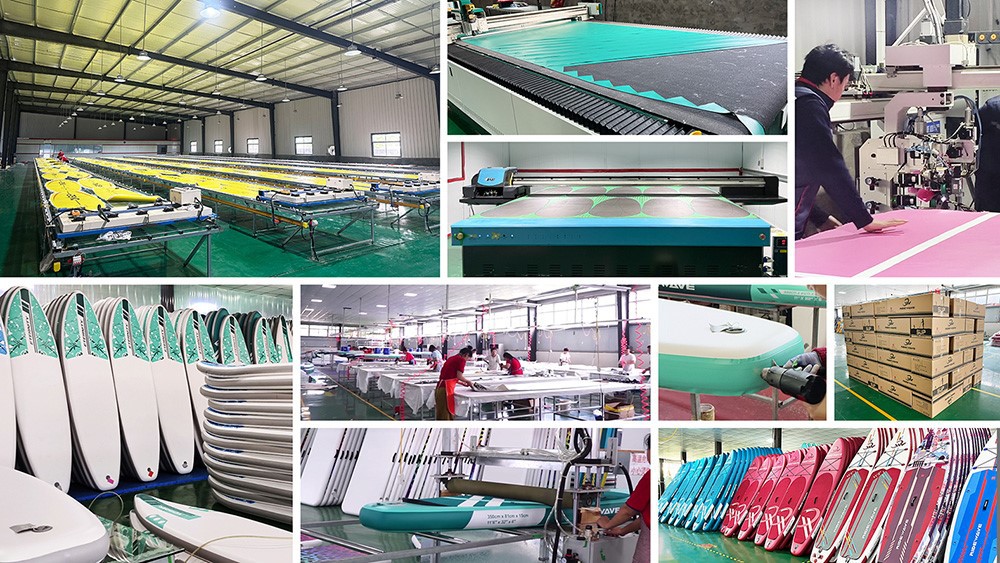
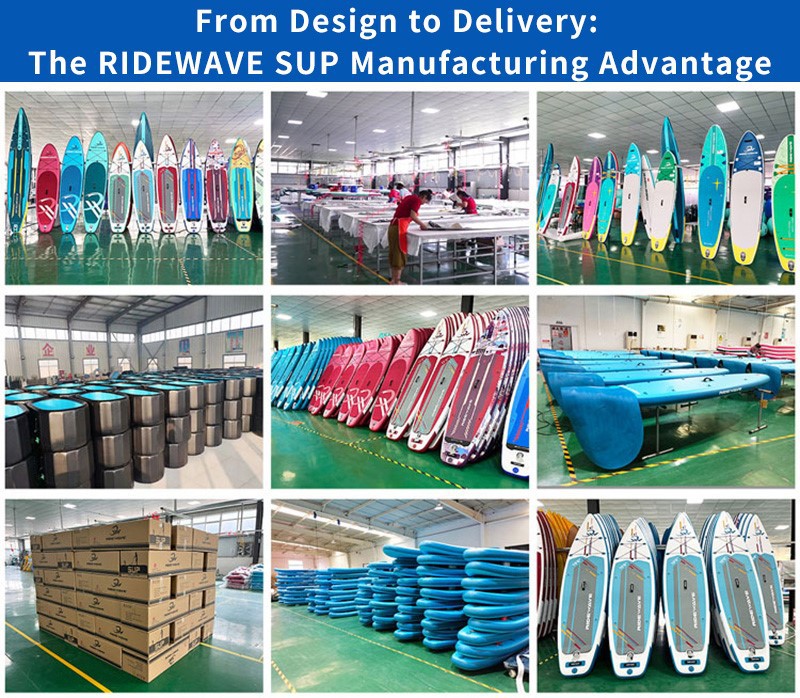
2. Key Qualities of a Reliable Paddle Board Manufacturer
When evaluating suppliers, ask yourself:
Do they have experience with OEM/ODM orders?
Can they customize graphics, packaging, accessories, and logos?
Do they use high-quality materials like double-layer PVC, fusion tech, or carbon rails?
Can they provide product testing reports or certifications (e.g. ISO, CE)?
How flexible is their MOQ for new brand launches?
A professional supplier should act as a solution provider, not just a product maker.
RIDEWAVE has over 10 years of OEM experience, exporting to 30+ countries. We help B2B clients like you with everything from design files to packaging suggestions-making it easier to turn an idea into a branded product line.
3. Visit or Video Audit the Factory
If possible, visit the factory-or at least request a video tour or a third-party inspection. This gives you insight into:
Production environment & equipment
Quality control processes
Packaging and storage systems
Staff professionalism and safety standards
RIDEWAVE offers virtual factory tours and live video calls, helping overseas buyers feel confident before placing orders.
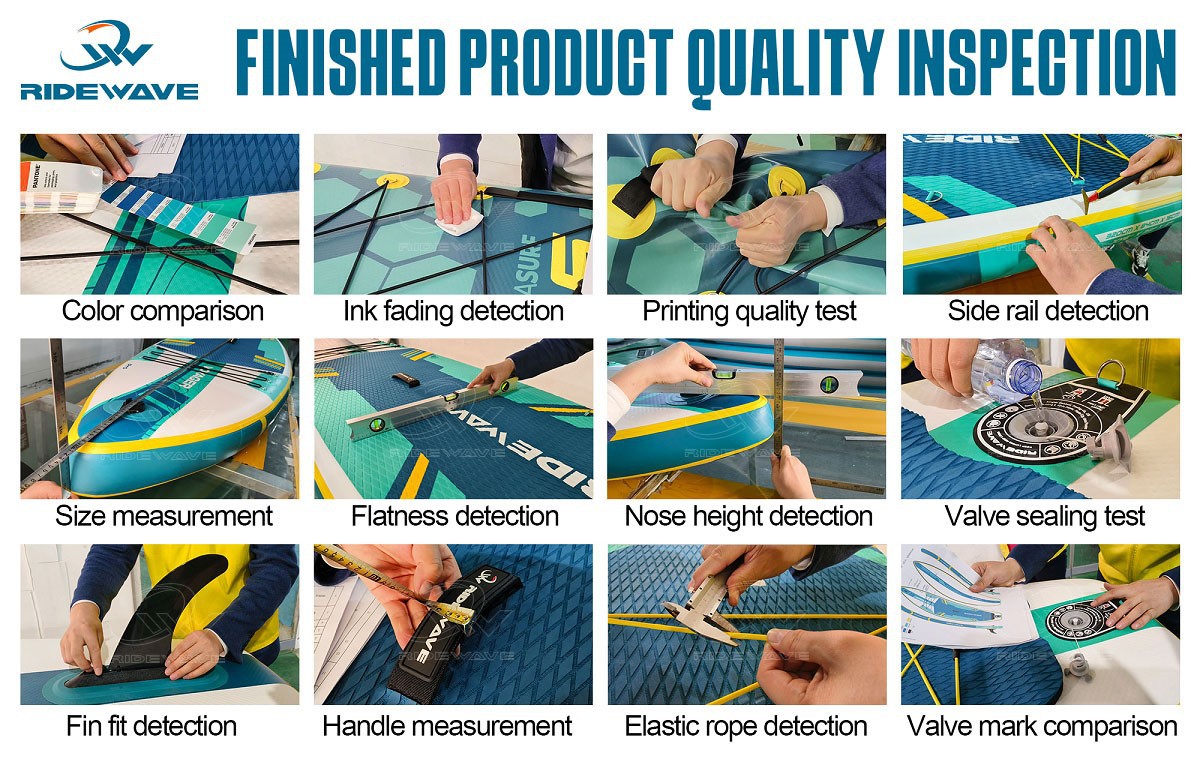
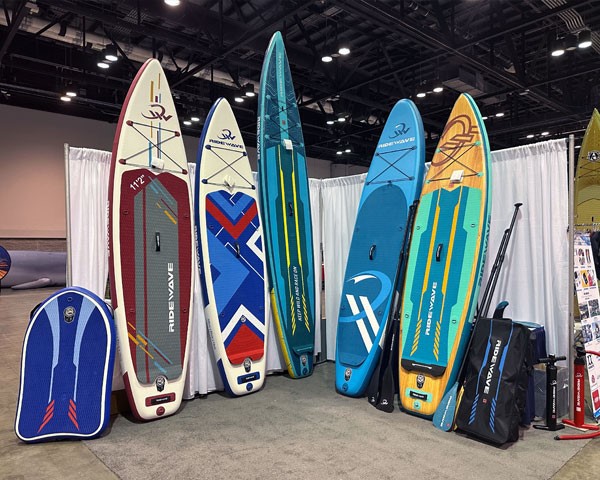
Before scaling up, always request a pre-production sample. Test the paddle board yourself or send it to a local partner. This helps verify:
Printing quality and logo positioning
Accessories (fins, paddles, pumps, bags)
Inflation stability and seam strength
Overall ride feel and handling
🧪 RIDEWAVE provides sample services with short lead times. We offer design previews, branded mock-ups, and suggestions to improve product-market fit.
5. Think Long-Term
You're not just buying products-you're building a brand. Choose a manufacturer who can support you as you grow:
Faster lead times for repeat orders
Consistent quality control
Flexible SKUs for expanding your line
Professional service and clear communication
Partnering with a supplier like RIDEWAVE allows you to scale your brand with confidence, knowing your supply chain is solid.
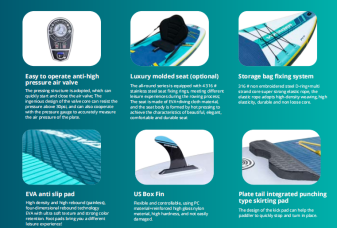
Conclusion
In short, 2025 is the time to start your paddle board brand. Whether it is the diversification of market demand, the unprecedented convenience of manufacturing capabilities, or the long-term value accumulation behind the brand, these provide a solid foundation for your brand success. In this increasingly obvious era, with the help of experienced OEM partners, you can not only quickly seize the market opportunities, but also achieve differentiated competition through sophisticated branding.
In future blogs, we will explore how to accurately position the market, choose the product segment that best suits your brand, and share more practical experience on optimizing supply chain and customer experience. If you are curious about how to build a unique paddle board brand from scratch, please pay attention to our next article - "From OEM to Brand Building: How to Launch Your Own Paddle Board Line in 2025 (Part2)". Let us uncover more secrets of success together and create a brilliant future for the brand!

